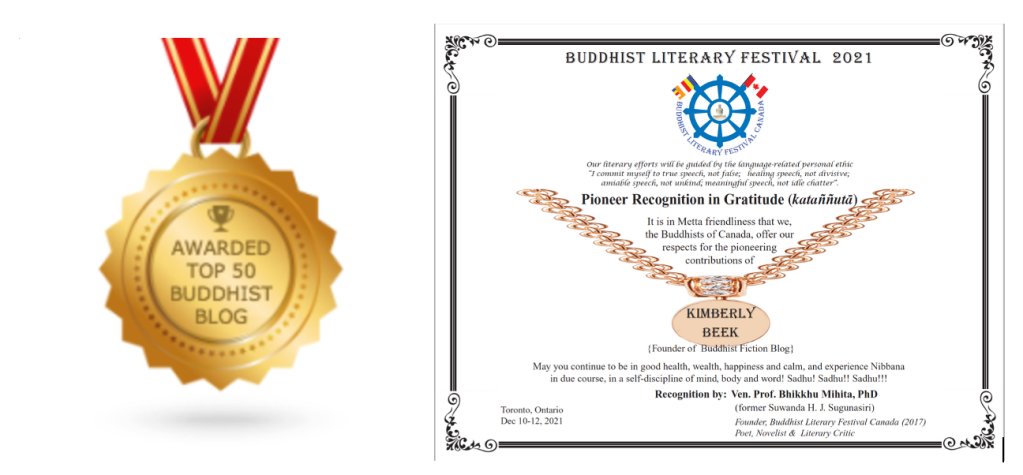BREAKFAST WITH BUDDHA has been labeled Buddhist fiction by Kimberly French (uuworld.org “Guide to Buddhist Fiction” by Kimberly French, 15 Feb 2010) and Danny Fisher (Rev.DannyFisher “FROM THE MAILBAG: Buddhism in Popular Fiction” by Reverend Danny Fisher, 6 Sep 2008).
This novel takes us on a journey like no other. Otto Ringling is an affable, middle-aged New York food book editor who lives a good life and loves his wife and two children. His sister Cecelia, by contrast, is, in Otto’s view, a New Age flake who lives in a dumpy New Jersey neighborhood and can’t get her life together. When their parents die in a car accident, the siblings must go back to the North Dakota farm where they were raised and take care of the estate. But things get complicated when Cecelia pulls a fast one and Otto finds himself in a car headed west not with his sister but with her guru, Volvo Rinpoche.
Cooped up with this guru for several days, Otto has to find a way to keep him off his back. And the guru is anything but reasonable. He knows just how to probe Otto, causing him to consider aspects of life he never thought – or wanted to think – much about before. Otto has always seen himself as reasonable, but the guru pricks him here and there, and Otto finds himself irritated, or even angry, despite himself.
Rinpoche keeps saying Otto is lucky to have been born to fortunate circumstances. “Don’t waste,” he says repeatedly – meaning, don’t blow your chance to discover the true meaning of life. After several skirmishes, the two make a pact: Otto will show Rinpoche what he knows about the United States and Rinpoche will show Otto what he knows about spirituality. There are many surprises on this journey to Otto’s new understanding of himself, and they kept this reader laughing all along the way.
Some questions to ponder:
1. Rinpoche is from an obscure branch of Tibetan Buddhism in Siberia. While this branch does exist, most people have never heard of and know nothing about it. Does this fact make it easier for Merullo to put whatever words he likes into Rinpoche’s mouth without having to worry about whether the reader would object that a Tibetan master wouldn’t say that?
2. Does Otto’s gradual transformation seem realistic to you?
3. Does the travelogue aspect of the book work for you? Did you learn something from the way Rinpoche saw America?
4. How does Otto’s food fetish serve to advance the plot?
What did you think of this book? Please share your views.


